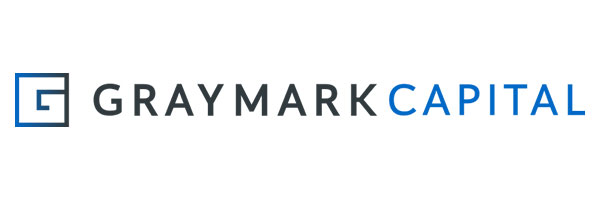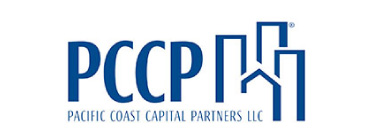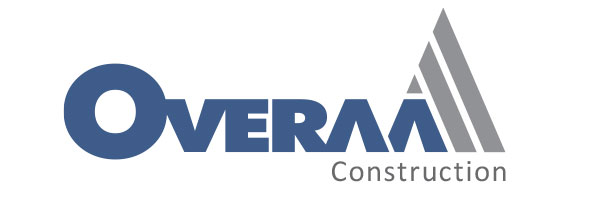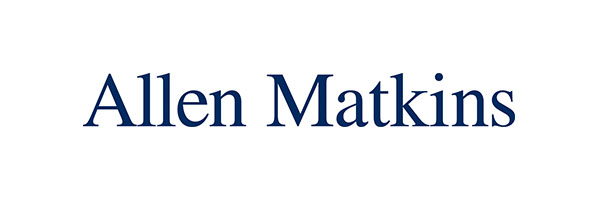CBPA's California Legislative Update 4/12/19

- AB 142 – LACTATION ROOMS; CONCERNS IN PLAIN ENGLISH:
- LANDLORD/TENANT AND RENT CONTROL BILLS
- BILL TARGETING WAREHOUSE CONSTRUCTION OPPOSED
- INDUSTRY SUPPORTS DISTRIBUTED ENERGY BILL
- PLEASE TAKE THE ARB CHARGING STATION SURVEY
- CBPA 2019 CALENDAR
AB 142 – LACTATION ROOMS; CONCERNS IN PLAIN ENGLISH:
Once again, we are dealing with a bill in the legislature that mandates expanded access to Lactation Rooms in commercial buildings. The bill, AB 142 by Senator Weiner from San Francisco, is very similar to a bill he carried last year that was vetoed by Governor Brown.
As an industry our main concerns with the bill is that it brings building owners and managers into the middle of an employer-employee relationship in which we do not belong.
In terms of building code issues, the bill is very owner-occupied-centric. The issues we have mainly occur with multi-tenant situations where responsibility for tenant improvements may be 100% on the owner, 100% on the tenant, or some combination thereof, but as the bill is written it ignores how leases are written and agreed upon.
Also, this bill assumes that all real estate markets across the state are the same – akin to those in coastal cities – and will be much more difficult to comply with in areas where tenants have less capital to work with.
Over the past week we have been working with our legislative committee, the author, and his staff to identify our specific issues and try to resolve them. Here they are, and you are encouraged to share this information with local legislators:
ISSUE 1. The entity responsible for making modifications should be who is responsible for providing the space (it is common for tenants to control their own space). This is how it is in S.F.’s ordinance.
SOLUTION: Clarify the entity triggering the law is the responsible party for the accommodation (that may be a building owner, manager, or tenant).
ISSUE 2. Currently the bill triggers a Tenant Improvements in spaces that not part of the qualifying event. An improvement in one tenant’s Premises should not trigger requirements in other Premises in building/center. Shifts cost and/or requires use of common space that may not exist.
SOLUTION: Clarify this only trigger for the space triggering the law.
ISSUE 3. If no reasonable space within Premises and no need to provide space elsewhere in building/center if no room in Premises. This commonly occurs in an industrial campus setting where each company has its individual space. SOLUTION: Provide an exemption for properties that do not have common space/office space.
ISSUE 4. Number of employees at one location instead of companywide. Bill currently could trigger based on company employees not the actual number on site.
SOLUTION: Clarify occupancy load pertains to the onsite employees only.
ISSUE 5. Technical issue. “Daily occupancy” language is not a common term used in law. There are fire marshal standards for max occupancy but there are not statewide standards for occupancy load.
SOLUTION: Work with the Local Building Officials Association to determine now local building officials would determine how many employees will be on premises daily.
ISSUE 6. Technical/Governance issue. We think the building code references are unneeded. The provision of lactation accommodation is a “service” as opposed to a physical occupancy. Meaning that the “service accommodation” will be triggered at some point post-initial construction and will be dependent on the staffing needs of individual tenants in the building. So, the appropriate response to this will be the provision of lactation accommodation by the employer (as opposed to the building owner).
SOLUTION: Strike the building code references and provide direction through the Labor Code and or to local government inspectors.
We are suggesting a simpler way to write the bill would be to take the Labor Code provisions in current law and just require as part of that accommodation the table, chair, refrigerator, etc. be available. We will keep you posted.
LANDLORD/TENANT AND RENT CONTROL BILLS
As you know from past eWeeklys there are over 200 bills trying to address the “housing” crisis. We think the best way to address the shortage of housing in California is to build more housing by reforming laws that make homebuilding so difficult and expensive.
However, many legislators have some other unique and interesting ideas, many of which would roll back some of your rights as a property owner. Here are some of the worst of the worst. Ranging from bills that would implement rent control – even after voters resoundingly defeated it at the polls in November – to bills that would make it very difficult to evict problem tenants.
Although many of these bills are currently focused on residential properties, they would also apply to mixed-use projects, and would have a deleterious effect on commercial leasing as many statutes do not distinguish between commercial/residential leasing and/or the bills will eventually bleed over into commercial leasing:
AB 36 (Bloom D) Residential tenancies: rent control. Proposes amendments to the State’s Costa Hawkins Rental Housing Act that would establish a form of statewide a rent control. Would modify existing law to authorize an owner of residential real property to establish the initial and all subsequent rental rates for a dwelling or unit that has been issued its first certificate of occupancy within 10 years of the date upon which the owner seeks to establish the initial or subsequent rental rate, or for a dwelling or unit that is alienable separate from the title to any other dwelling unit or is a subdivided interest in a subdivision and the owner is a natural person who owns 2 or more residential units within the same jurisdiction as the dwelling or unit for which the owner seeks to establish the initial or subsequent rental rate, subject to certain exceptions. POSITION: OPPOSE.
AB 53 (Jones-Sawyer D) Rental housing discrimination: applications: criminal records. This bill makes it unlawful for the owner of any rental housing accommodation to deny the rental or lease of a housing accommodation without first satisfying specified requirements relating to the application process. The bill would prohibit the owner of a rental housing accommodation from inquiring about or requiring an applicant for rental housing accommodation to disclose, a criminal record during the initial application assessment phase, as defined, unless otherwise required by state or federal law. POSITION: OPPOSE.
AB 724 (Wicks D) Rental property data registry. This bill requires the Department of Housing and Community Development to create a rental registry online portal, which would be designed to receive specified information from landlords regarding their residential tenancies and to disseminate this information to the public. The bill would require landlords who own or operate property that includes more than 15 dwelling units to register within 90 days and annually thereafter. POSITION: OPPOSE.
AB 1110 (Friedman D) Rent increases: noticing. This bill would require 90 days’ notice if a landlord of a residential dwelling with a month-to-month tenancy increases the rent by more than 10%, but no more than 15%, of the amount of the rent charged to a tenant annually. This bill would require 120 days’ notice if a landlord of a residential dwelling with a month-to-month tenancy increases the rent by more than 15% of the amount of the rent charged to a tenant annually. POSITION: OPPOSE.
AB 1188 (Gabriel D) Dwelling units: persons at risk of homelessness. This bill authorizes a tenant to temporarily permit the occupancy of their dwelling unit by a person who is at risk of homelessness, regardless of the terms of the lease, without negative repercussions from the owner or landlord of the property. POSITION: OPPOSE.
AB 1399 (Bloom D) Residential real property: rent control: withdrawal of accommodations. A public entity acting pursuant to the Ellis Act to require an owner who offers accommodations against for rent or lease within a period not exceeding 10 years from the date on which they were withdrawn, as specified, to first offer the unit to the tenant or lessee displaced from that unit by the withdrawal, subject to certain requirements. If the owner fails to comply with this requirement, the owner is liable to a displaced tenant or lessee for punitive damages not to exceed 6 months’ rent. This bill would prohibit a payment of the above-described punitive damages from being construed to extinguish the owner’s obligation to offer the accommodations to a prior tenant or lessee, as described above. POSITION: OPPOSE.
AB 1481 (Bonta D) Tenancy termination: just cause. This bill prohibits a lessor of residential property from terminating the lease without just cause stated in the written notice to terminate. This bill would require, for curable violations, that the lessor give a notice of violation and an opportunity to cure the violation prior to issuing the notice of termination, unless the notice to terminate states just because that is related to specific illegal conduct that creates the potential for harm to other tenants. POSITION: OPPOSE.
AB 1482 (Chiu D) Tenancy: rent caps. This bill prohibits an owner of residential real property from increasing the rental rate for that property in an amount that is greater than an unspecified percent more than the rental rate in effect for the immediately preceding year. The bill would prohibit a landlord from terminating a tenancy for the purposes of avoiding these provisions and would create a rebuttable presumption that the termination of a tenancy is for the purposes of avoiding these provisions in the absence of a written statement showing cause for the termination. POSITION: OPPOSE.
AB 1697 (Grayson D) Housing: tenancy termination: just cause. This bill would prohibit a lessor of residential property in which the tenant has occupied the property for 12 months or more, from terminating the lease without just cause, stated in the written notice to terminate. POSITION: OPPOSE.
AB 1795 (Kamlager-Dove D) Civil actions: unlawful detainer: court records. This bill would prohibit the access to the records of certain unlawful detainer actions. POSITION: OPPOSE.
SB 529 (Durazo D) Tenant associations: eviction for cause: withholding payment of rent. This bill would declare that tenants have the right to form, join, and participate in the activities of a tenant association, and withhold rent for any purpose they deem needed regardless of lease documents. POSITION: OPPOSE.
BILL TARGETING WAREHOUSE CONSTRUCTION OPPOSED
This week we testified against AB 485 by Assemblymember Jose Medina (D-Riverside) which is a re-introduction of a bill from last year that our industry opposed and was vetoed by Governor Brown. The bill comes up with a complicated set of reporting requirements that certain industrial projects must provide before a city can offer economic incentives over a certain amount.
Our industry strongly opposes the bill again this year as it unreasonably targets one building type, warehouses, when working together with a local government on economic development subsidies. Those decisions should be left under the purview of local government authorities.
Current law already requires extensive disclosure of information by all project types getting such subsidies.
Here is the Governor’s veto message of this idea from last year.
INDUSTRY SUPPORTS DISTRIBUTED ENERGY BILL
SB 288 (Wiener; D-San Francisco) a measure designed to reduce barriers to the deployment of distributed energy resources by addressing needed changes in utility tariffs and reducing interconnection challenges. This bill is dubbed the Solar Bill of Rights. It passed the Senate Energy, Utilities, and Commerce Committee this week on a unanimous vote.
SB 288 would ensure that California businesses and homeowners are able to make, store and use clean energy on their property without undue interference from the utility; connect clean energy technologies to the grid in a quick and efficient manner; be free from inequitable fees and charges associated with installing onsite clean energy technologies; and increase the reliability and resiliency of the state’s electric grid.
As wildfires and other climate-related challenges become more frequent and destructive, California must build a power grid that is more reliable, resilient and safe. By reducing climate pollution, increasing the state’s reliance on distributed energy resources, and giving customers a way to keep the lights on when the grid goes down, local solar, batteries, and other smart clean energy technologies are an important piece of a cleaner and more reliable energy future.
PLEASE TAKE THE ARB CHARGING STATION SURVEY
The California Air Resources Board (CARB) is tasked with leading the state’s effort to reduce carbon emissions. Many strategies are being employed but one that impacts our industry the most is increased energy efficiency through the state building code.
CARB is collecting anonymous data to measure the conversion rate of electric vehicle (EV) Capable spaces to EV charging spaces in new commercial buildings in California. EV Capable spaces are parking spaces that include basic EV charging infrastructure including raceway (enclosed conduit) and panel capacity to accommodate future installation of a Level 2 EV charger.
CARB staff are also trying to better understand any barriers encountered with the installation of Level 2 EV chargers. Results of this survey will be used to inform development of the California Green Building Standards (CALGreen) Code.
The questionnaire will take about five minutes to complete. This survey is anonymous and you have until April 12, 2019:
Nonresidential Developer Survey of Electric Vehicle (EV) Charger Installations
Multifamily Developer Survey of Electric Vehicle (EV) Charger Installations
Please take the time to complete this survey. The results will inform future requirements on your properties!
CBPA 2019 CALENDAR
June 11 – 12, 2019
California Commercial Real Estate Summit
Sacramento
December 5 – 6, 2019
Strategic Issues Conference
Napa Valley








































